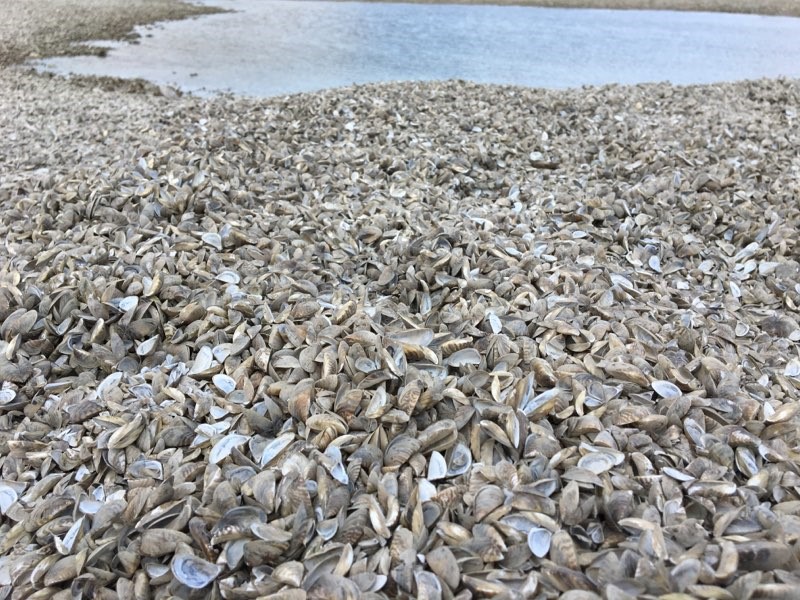If Shoal Lake ends up overrun with zebra mussels, it could cost a lot to fix it.

Manitoba Sustainable Development and the Ontario Ministry of Natural resources and Forestry announced Monday that a zebra mussel larva had been found in the source of Winnipeg’s drinking water.
The state of Michigan has had similar problems with the pests, and while they found ways around it, it cost billions of dollars, a research scientist told 680 CJOB.
Gary Fahnenstiel, a senior research scientist at Michigan Tech Research Institute, said there were major issues with zebra mussels in his state, notably a water emergency in Monroe, Mich.
“I think, realizing a Great Lake serves as a water source to millions of people, that they had some major problems,” said Fahnenstiel.
“(In Monroe) they actually had to run out and put temporary pipes in on the ice to get water in for the town because the mussels had clogged — completely — the water intakes.”

Get daily National news
Fahnenstiel said the situation was eventually resolved by chemical and/or physical treatments to remove the mussels, but at a massive price tag, which has just become a “cost of doing business” in the area.
The zebra mussel, however, isn’t the only thing Manitobans should be concerned about. A close relative, the quagga mussel, is also an invasive species, and it has the unpleasant attribute of thriving in cold weather.
“The big difference between them – which made it much more problematic for the Great Lakes and I’m sure would be the same for Winnipeg or most of Manitoba – is that basically the quagga mussel tolerates cold temperatures much better,” he said.
“The zebra mussel needs the water to get above 10 degrees Celsius or 50 degrees Fahrenheit for it to reproduce. The quagga mussel doesn’t have those same requirements. It does very well in cold weather.”
Fahnenstiel said the danger with mussels isn’t related to the quality of drinking water, but rather the ability to keep the water moving through pipes.
“You can still drink the water if the mussels are in it,” he said, “but it’s about clogging up the infrastructure.
“What are you going to spend to keep that water moving?”
WATCH: Zebra mussels near Gimli









Comments